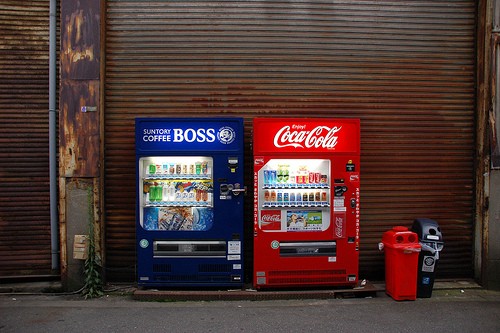Brits Use Vending Machines to Distribute Methadone in Prisons
Inmates in 140 British prisons will eventually get their daily methadone dosage via a vending machine.
Candy bar, chips, cola...methadone; decisions, decisions…
British inmates may find their vending machines stocked up with an extra little something in the months to come as the Labour government implements a 4 million pound scheme to install methadone vending machines in roughly half of all prisons, nationwide. So far, machines are in place in 57 of a planned 140 prisons.
The machines are used to administer the opiate substitution medication to prisoners who have been assessed as opiate dependent and who would benefit from the substitution therapy. Supplying methadone to inmates reduces levels of illicit opiate use in prisons and helps opiate addicts manage their dependency.
To ensure that the medication is not diverted, the methadone vending machines will require a biometric identification, through the use of a retinal iris scan or a fingerprint, before they will dispense a day’s medication.
Although opposition politicians have ridiculed the vending machines, a Department of Health spokesperson defended their use, saying, “Methadone dispensers are a safe and secure method for providing a prescribed treatment. They can only be accessed by the person who has been clinically assessed as needing methadone and that person is recognized by a biometric marker, such as their iris.”
Opposition MP, Dominic Grieve, lambasted the plan, saying, “We need to get prisoners off all drug addiction -- not substitute one dependency for another. The government's approach of trying to 'manage' addiction is an admission of failure…The public will be shocked that Ministers are spending more on methadone vending machines than the entire budget for abstinence based treatments."
Although methadone is proven the most effective treatment for the management of opiate addiction, its use has always prompted controversy. Abstinence treatments for heroin addiction have shown very little long term efficacy, but tend to be an easier political sell.
Roughly 6400 Britons reside behind bars on drugs charges.


